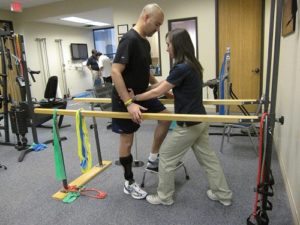Does a Workers Compensation Claim Continue if My Employer Terminated Me

A common question from clients who have been injured on the job is whether they can be fired while out on worker's compensation leave.
The answer is not as simple as yes or no. While you cannot be terminated simply because of a worker's compensation claim, it is possible to be terminated while you have an open worker's compensation claim.
An experienced Workers' Compensation attorney can help you in handling a termination while on workers compensation leave.
Should I Even File a Workers' Compensation Claim?
It is not uncommon for employees to avoid filing a worker's compensation claim for fear that they will lose their jobs as a result. So, instead, employees use their health insurance, sick days, or short-term disability benefits to handle their work-related injury or illness.
However, many doctors routinely ask whether an injury occurred at work and, if so, they will bill the employer's workers' compensation insurance provider. So, you may be required to file the claim.
When is it Legal for my Employer to Fire me While I'm on Leave?
If your employer can demonstrate that there were reasons for terminating you, or laying you off, that had nothing to do with your workers' compensation claim, then you may not have any recourse.
In order to be able to bring a workers' compensation retaliation claim, which means you were terminated merely because you filed a claim, you have to demonstrate that was the only reason you were fired. That can be very difficult to do.
Most Employees are Considered "At Will" Employees
The majority of employees nowadays are considered "at will" employees, which means they can be terminated for nearly any reason, or for no reason at all. There are exceptions for different types of discrimination.
But, if an employer can show, for example, that an employee had poor work performance, or there was a business need for layoffs because of financial problems, then the employer may be able to disprove a retaliation claim.
Contracted Employees have Different Rights
Contract attorneys, meaning those whose employment is established and governed by a written contract, have different rights than an "at will" employee. The employment contract will list the specific reasons for which your employer may terminate you.
However, your employer is still prohibited from terminating you in retaliation for filing a workers' compensation claim.
What is an Employer Required to do Under Workers Compensation Law?
Under the workers' compensation laws, an employer is required to maintain an employee's job while a workers' compensation claim is pending. That is, until the employee has fully recovered or reached "maximum medical improvement."
Maximum medical improvement, or MMI, describes the point at which your work-related medical condition is not likely to improve with further treatment.
What Happens if I Can't Return to Work?
If your employer is unable to accommodate your work restrictions once you have reached MMI, your employer can terminate your employment.
This is common in situations where the nature of the job is such that, an individual with certain restrictions simply cannot continue to perform the job. Your employer can offer you an alternative position, but it is not required.
However, there may be additional workers' compensation benefits available, or you may be eligible for vocational training, permanent or total disability benefits.
Discuss your options with your employer and attorney, if necessary.
Contact an Experienced Workers Compensation Attorney Today
If you have questions regarding termination during a pending workers' compensation claim, or any other workers' compensation concerns, contact the Cottrell Law Office by sending an online message or calling us at (855) 503-8140.
We offer free consultations so you can get started on your case.
robersonfortudieved96.blogspot.com
Source: https://www.cottrelllawoffice.com/handling-termination-while-on-workers-compensation-leave/

0 Response to "Does a Workers Compensation Claim Continue if My Employer Terminated Me"
Postar um comentário